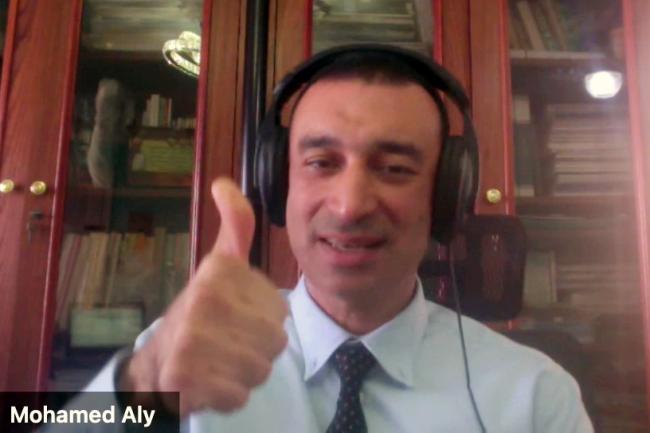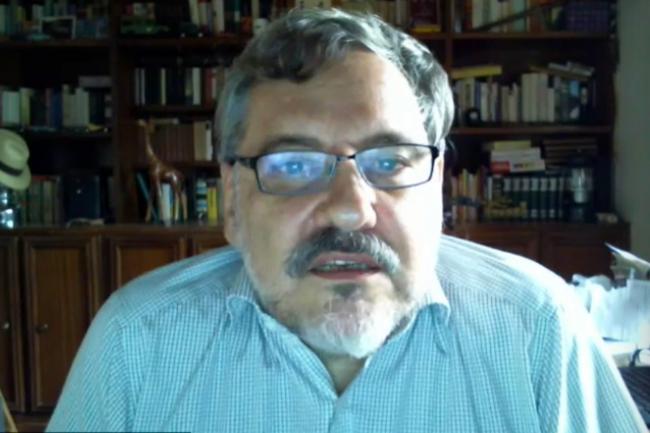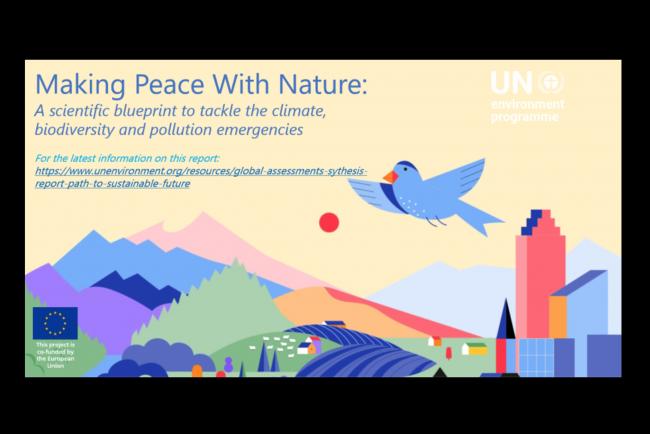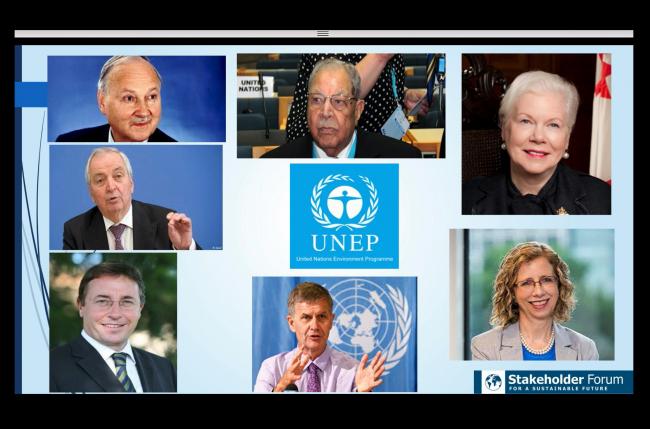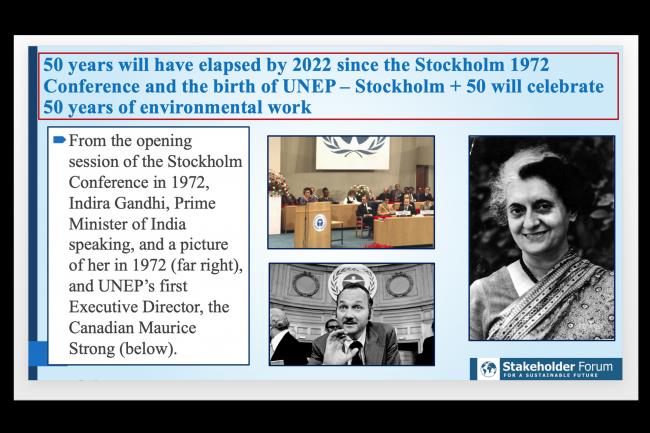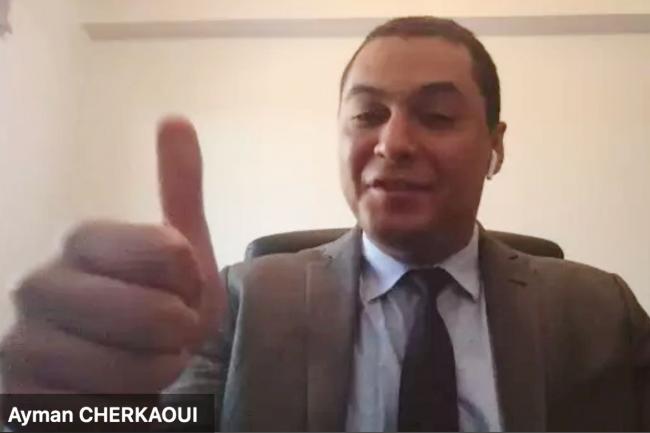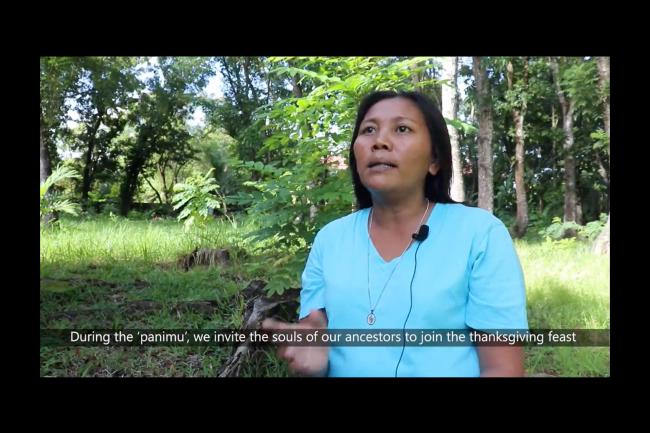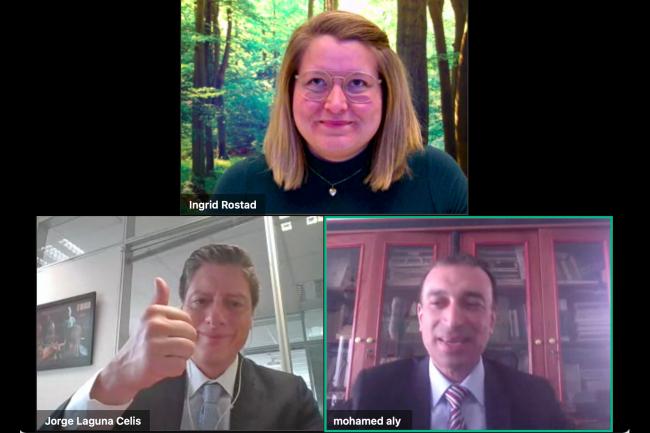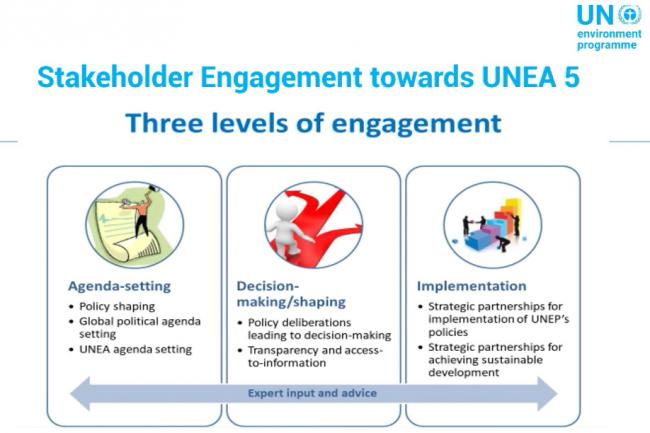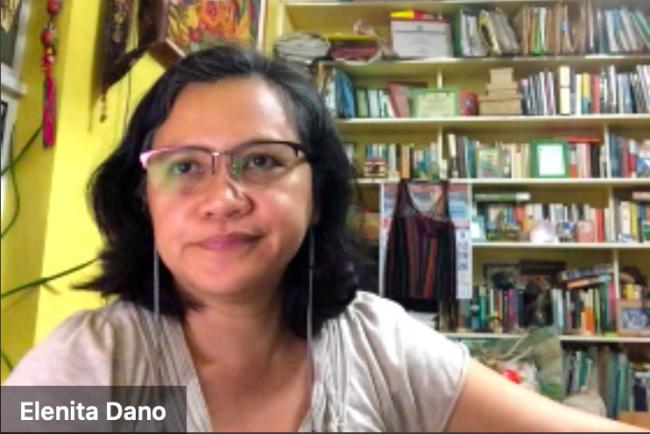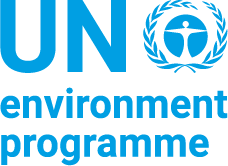Highlights from 11 February 2021
The third and final day of GMGSF opened with a consultation on the main messages from Major Groups and Stakeholders (MGS) to the UN Environment Assembly (UNEA). Co-facilitators Khawla al Muhannadi, Environment Friends Society, Aisha Karanja, Back to Basics, and Patrizia Heidegger, European Environmental Bureau, invited input on the fourth draft of the final Statement to UNEA-5. They reviewed the process of developing the document, explaining that the draft included most of the inputs from the facilitators of the GMGSF consultations on February 9 and 10, as well as revisions resulting from the previous day's thematic breakout groups.
Titled “Building Forward Better,” the Joint Global Statement from Major Groups and Other Stakeholders for consideration by UNEA-5 is divided into three sections: a Preamble; Main Messages for UNEA 5.1; and From UNEA 5.1 to UNEA 5.2 - Stepping Up the Momentum.
The Preamble makes the case that the time to act at the global level is now. It characterizes the COVID-19 pandemic as a "wake-up call" to accelerate global environmental decision-making and seek transformative change.
The section on Main Messages for UNEA 5.1 provides detailed recommendations on UNEP’s Medium Term Strategy 2022-2025 and related Programme of Work and Budget. It also address planned commemorations of Stockholm+50 and UNEP@50 in 2022. A final subsection addresses follow-up to UN General Assembly Resolution 73/333, adopted in 2019, on strengthening implementation of international environmental law.
The third section discusses opportunities to “build forward better” from the COVID-19 pandemic through enhanced synergies with the 2030 Agenda on Sustainable Development. There are calls to:
- launch negotiations on a legally binding instrument on plastic pollution;
- address the environmental dimensions of armed conflicts and military activities;
- adopt an ambitious post-2020 framework on biodiversity;
- adopt a global legal mechanism to phase out highly hazardous pesticides by 2030;
- adopt a globally-agreed SDG 14 framework at the 2022 UN Oceans Conference; and
- push for transformational and systemic change to the food system at the UN Food Systems Summit scheduled for October 2021.
During the closing session facilitated by Mohammed Aly Abdelraouf, Chair, Major Groups Facilitating Committee, MGS representatives made final statements. They reiterated, among other issues, the need to:
- convey an inclusive and balanced message to UNEA;
- highlight the contribution of the private sector to food systems and a circular economy;
- pursue a One Health-One Welfare approach linking human, animal and environmental health for post COVID-19 recovery;
- safeguard UNEP’s scientific integrity from undue influence by corporate interests;
- ensure an inclusive and just transition through a focus on rights holders, including female food producers, young people, indigenous communities and environmental defenders; and
- address the impacts of chemicals and pesticides in food systems.
Regional participants expressed positive views on the GMGSF outcome document. Individual statements were made urging all to move from theory to practical solutions, calling for coordinated top-down and bottom-up work, stressing the need for common measures and data across sectors and groups to drive accountability, and urging reinsertion of language against ecocide and biocide into the MGS Statement.
In his closing statement, Alexander Juras, Chief, UNEP Civil Society Unit, joined staff in thanking all organizers and participants for the success of the Forum and the powerful Statement produced, despite the limitations of the online format. He urged the MGS to activate the thematic clusters of UNEA 3 and consider adding more in light of COVID-19.
Closing the session, Aly encouraged MGS to participate in a dialogue with the UNEA President on February 16, as well as an upcoming dialogue with UNEP’s Executive Director on March 3, 2021. He then declared the meeting closed at 17:59 East African Time.
Visit our coverage for Thursday, 11 February 2021.
IISD, through its Earth Negotiations Bulletin (ENB) Meeting Coverage, will produce a summary report from the meeting on Sunday, 14 February 2021.
Highlights from 10 February 2021
On the second day of GMGSF, participants continued discussing key messages from Major Groups and Stakeholders (MGS), organized around core themes on the UNEA-5 agenda.
Outlining MGS perspectives on UNEP’s Medium Term Strategy (MTS 2022-2025), Wali Haider, Roots for Equity, welcomed the focus on the triple “existential crises” of climate, biodiversity, and pollution. He highlighted six recommendations addressing the need to:
- clearly define what constitutes “science” and “policy” to ensure the inclusion of diverse knowledge systems and consultative processes;
- establish a meaningful mechanism to link the work of UNEP’s Science-Policy foundational sub-programme into UNEA processes;
- explicitly include civil society in UNEP’s technology foresight and horizon scanning exercises
- categorically state that UNEP will continue to support and defend environmental defenders beyond providing legal training;
- adopt clear targets and indicators to monitor progress in mainstreaming conflict and disaster measures; and
- reconsider decisions moving away from previous foundation principles, including Common But Differentiated Responsibility and agro-ecological approaches for sustainable food production.
Griffins Ochieng, Centre for Environment, Justice and Development, summarized perspectives on UNEP’s Programme of Work (PoW), noting that the COVID-19 pandemic has underscored the neglect of animal welfare in environmental governance. He discussed additional MGS priorities relating to the need to:
- mobilize diverse groups, especially faith-based communities, and allocate resources for civil society to participate in PoW implementation;
- enhance linkages with UN-HABITAT to address urban-rural linkages; and
- promote citizen science and the co-design of nature-based solutions at the local level.
In a panel session on preparations for UNEP’s 50th anniversary in 2022, facilitated by Stephen Stec, Science & Technology Major Group, and Yugratna Srivastava, Children & Youth Major Group, there was general agreement that UNEP@50 is a commemoration rather than a celebration, given the global health pandemic and current existential environmental crises. Ivar Baste, Lead Author of UNEP’s Synthesis Report of Major Global Assessments, provided an overview of the report. The session also featured a presentation of preliminary findings of a “Snapshot Survey” of civil society views on UNEP’s past and future, and input on elements for an MGS Report on “The UNEP We Want,” to feed into UNEP@50.
Jan-Gustav Strandenaes, Stakeholder Forum, and NGO Major Group, and Teresa Oberhauser, Children and Youth Major Group, moderated the panel on preparations to commemorate Stockholm +50. In a scene-setting presentation, Strandenaes highlighted some of the enduring legacies from the 1972 Stockholm Conference on the Human Environment, calling for the proposed conference to emulate this pioneering spirit to strengthen environmental diplomacy and governance for the next 50 years. Participants engaged in a rich exchange on, inter alia: envisioning the world in 50 years; prospects for new international environmental law negotiations; breaking issue silos and pursuing cross-linkages; encouraging a proactive rather than reactive stance on environmental issues; influencing the behavior of the business and financial sectors and encouraging consumer lifestyle changes; recasting environmental ethics; influencing local government action; reflecting the gender dimension of environmental issues; and involving Major Groups and Stakeholders in implementation.
During a final plenary session, facilitators of the consultation on MGS messages presented the latest version of the draft MGS joint statement to UNEA-5, after which participants met in break-out groups and an open working group to further deliberate on the meeting’s outcome.
Visit our coverage for Wednesday, 10 February 2021.
Highlights from 9 February 2021
The online session of the Global Major Groups and Stakeholders Forum (GMGSF) opened today to review the outcomes of five consultations held in 2020, and develop joint messages to convey to UNEA-5.
Addressing participants via video message, UNEA President Sveinung Rotevatn, President of UNEA and Minister of Environment and Climate of Norway, lauded the “enthusiasm, dedication, and commitment” of civil society in building today’s global environmental governance structures.
In their welcome remarks, Mohamed Abdelraouf, Chair, Major Groups Facilitating Committee, and Jorge Laguna Celis, UN Environment Programme (UNEP), said civil society reminded UNEA negotiators to be mindful of the people they work for, and underscored the part they can play in amplifying messages on the central role of nature in building a resilient and inclusive post-pandemic world.
Ulf Bjornholm, and Jorge Laguna Celis, UNEP, briefed participants on arrangements for the virtual and resumed in-person sessions of UNEA-5, to be held in 2021 and 2022 respectively. They noted that the “lean” online session, UNEP 5.1 – taking place on 22-23 February 2021 – will focus on administrative and procedural matters, while more substantive decisions would await the full UNEP 5.2 session, tentatively scheduled for February 2022.
The Forum then convened two panel discussions addressing Major Groups and Stakeholders perspectives on the UNEP Medium Term Strategy (MTS 2022-2025). Presenting community-level experiences, the first panel opened with a keynote video highlighting the contribution of, and challenges faced by, environmental defenders from indigenous communities in the Philippines. The second panel focused on lessons from farmers, women, and groups working on disaster and conflict and erosion technology.
The discussions highlighted, among other concerns:
- the need to build on local knowledge and citizen science in developing solutions to environmental problems;
- the absence of language on the rights of environmental defenders;
- insufficient attention to the need for a green recovery from the Covid-19 pandemic;
- the contribution of indigenous communities to diverse, inclusive, and sustainable food systems;
- the need for more robust accountability frameworks, based on the polluter pays principle;
- the threat to financing, responsibility, and accountability for disaster and conflict management work as this topic grows from subprogram to mainstreaming across UNEP; and
- the need for legislation to phase out of highly hazardous pesticides.
The Forum also considered inputs on UNEP's proposed Programme of Work (PoW), with a focus on the link to MTS targets on climate, nature, and chemicals/pollution. Participants suggested tweaking the PoW to better reflect:
- the importance of animal welfare;
- the role of citizen science;
- the need for systemic change;
- better engagement with regions, the faith-based communities and local communities;
- the need for improved chemicals/waste financing; and
- more work on the rural/urban interface.
Following the session, Forum participants met in an open working group to draft messages to UNEA-5.
Visit our coverage for Tuesday, 9 February 2021.

